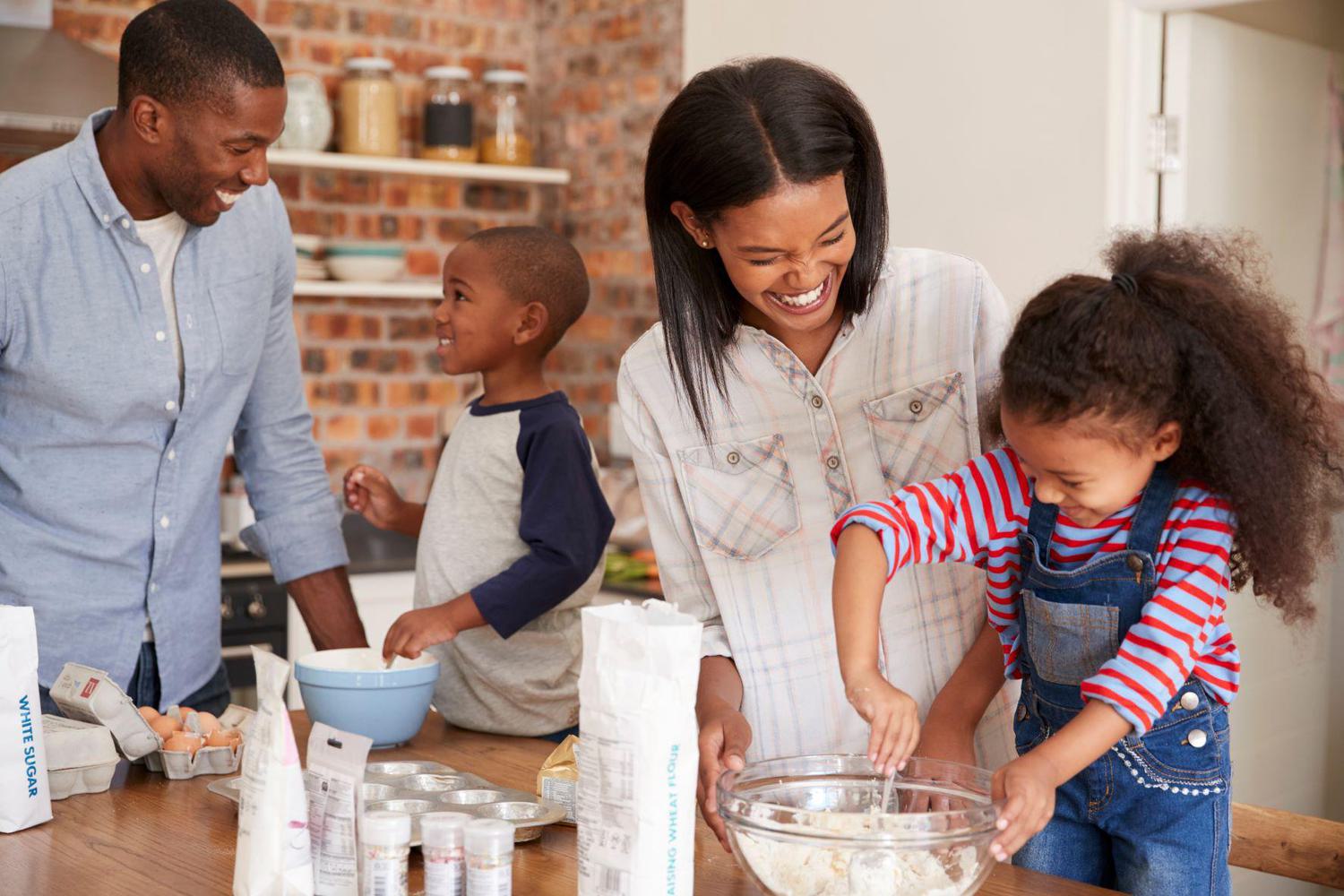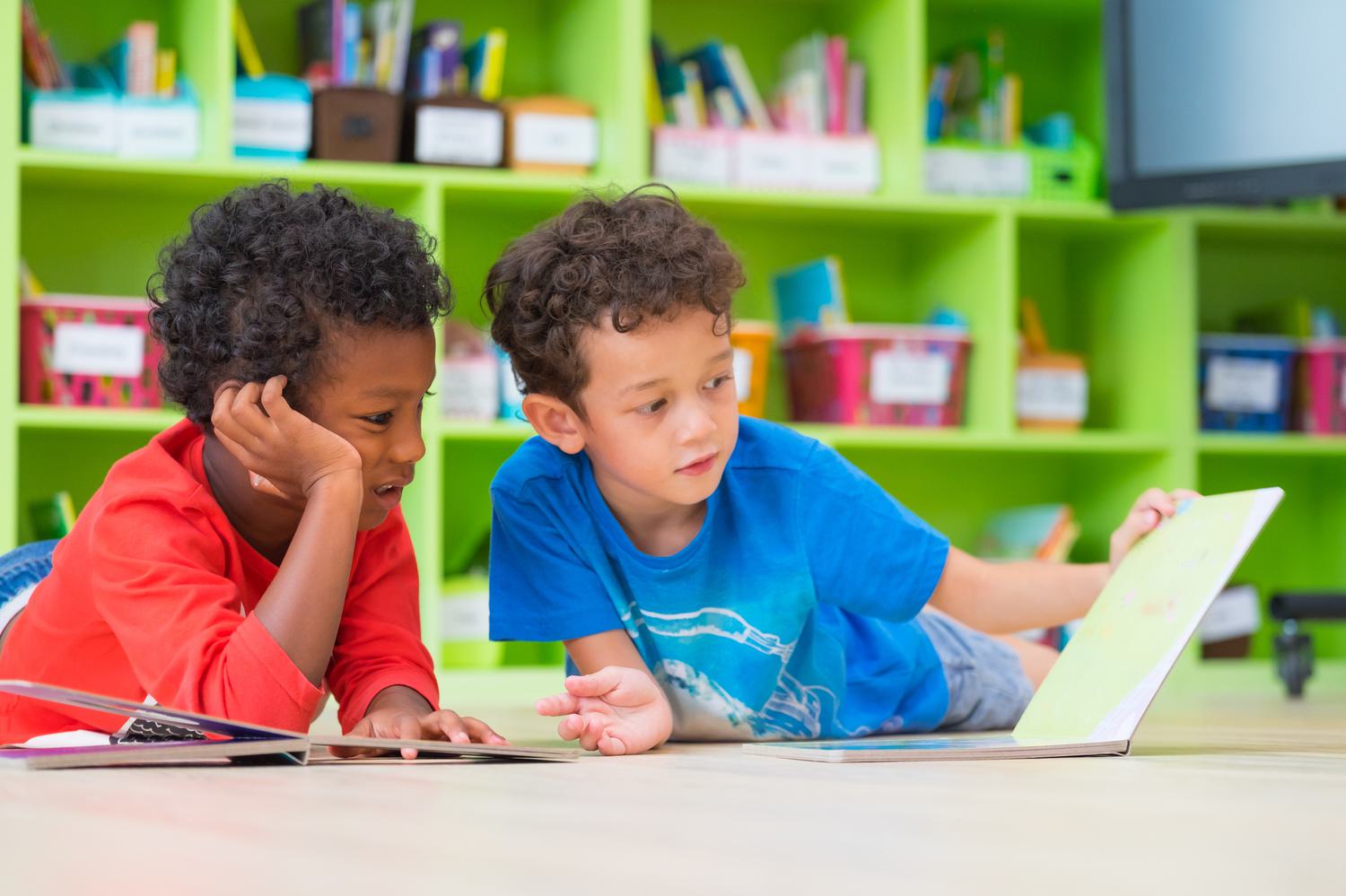When school lets out for summer, many parents find themselves wondering how best to fill the months ahead. With children out of their regular routines, its important to provide some structure to those endless summer days.
On This Page
The best things you can do for your children is to ensure their minds stay active over the long summer holiday. Coming up with a few fun activities and encouraging daily learning can help kids boost their skills and create good habits.
Stephen Coles, Headmaster at Island Primary, recommends incorporating skills your children have already learned at school. This not only helps train the brain, but it ensures your kids don't lose the skills they worked so hard to achieve in the first place. For Coles, a successful summer means keeping the momentum going. Of course, downtime over the holidays is important, but it's critical to get the balance right. Without tasks to help excite, motivate and stimulate the brain, a long summer of rest can end up having a negative effect on your child's learning.
It's much easier for a child to work on maintaining skills over the summer, than it is for them to come back in September and have to start all over again, says Coles.
And beyond the benefits of keeping the mind sharp, having a plan in place for the holidays is an excellent way for kids to begin building good patterns. Staying engaged in learning will help them develop good behaviours that will cross over to other areas of their life.
So whether it's a series of brain-boosting exercises, joining a camp or practising at-home skills, start planning how you can keep your little ones engaged this summer. To help get you organised, we've shared some of our favourite ideas below.
Track Your Goals

How do you get kids excited about learning new skills? Well, goal tracking can be a huge motivator!
At the beginning of summer, sit down with your children and choose a goal to work towards. With a specific goal in place, your child will have a fun and steady summer project to chip away at. From there, create a weekly plan and develop a tracking system that works for your chosen activity. The tracking system is important because it will help your child visually keep tabs on how much they are learning.
For example, if your child wants to learn Spanish, you could create a tracker where a sticker is placed for every ten new words learned. By the end of summer, they'll be able to see just how far they've come. Incorporating a rewards system is another great way to make their learning journey more exciting. Maybe when they've hit a certain number of words, there's an ice cream party!
Learn New Skills at Home
Classrooms are important, but at home, you have the opportunity to teach your kids a number of new skills. Although many schools now incorporate things like cooking, gardening and cleaning into their curricula, the summer holidays provide the perfect opportunity for kids to get more involved.
Get their hands dirty in the garden by planting something new together. Ask for their help when you cook their favourite meal. Show them what its like to care for something. When you involve your kids in everyday tasks around the house, you are teaching them important lessons about responsibility. And by having a better understanding of how things are done, they'll be set up for more success in the years to come.
Related Articles
Stay Social
In school, children are constantly surrounded by both friends and staff. Whether it's on the playground or in the classroom, there are always opportunities for conversation.
Aside from being critical to mental health and wellbeing, being social allows kids to build confidence in using social and emotional skills such as self-regulation and problem-solving, says Coles.
Some of the greatest learning kids can do is simply through chatting and playing with their peers. Hanging out with old friends or even meeting someone new can help your children develop confidence and improve their self-esteem.
So, schedule some playdates, have them join a new club or hang out at a park or the beach. Creating connections is a fantastic and fun way to keep your child active.
Cross the Comfort Zone

Some say that the key to happiness lies on the other side of our comfort zone. And while its important to get the balance right, helping your kids step outside of what's familiar to them can have huge benefits.
Summer camps are a fantastic way for kids to learn new skills and build confidence, and Cayman is lucky to have a wide range of options. Whether your child is looking to try a new sport, connect with their creative side or get out on the water, there are many camps to choose from. Camps are also a great way for your children to meet new people and make new friends.
Related Articles
Overseas overnight camps can also be a great option and are really fun once your child gets over the initial worry of being left there for two weeks or a month! These camps can provide amazing learning opportunities and new activities that your children might not find at home.
For example, Onondaga Camp in Ontario, Canada has over 30 different activities for kids to participate in. Whether its watersports, ziplining, horseback riding or tennis, overnight camps can truly keep your kids on their toes and learning all summer long. They take children from the age of 6-16 and then at 16 years of age, campers can start the process of becoming a counsellor. The Leadership In Training (LIT) course is a two-year programme and it teaches the skills needed to lead activities and how to be a successful cabin counsellor. It's a wonderful opportunity for a teenager.
Summer camps are great because they offer a superior experience for growth and independence, says Alyson Robertson, Director at Onondaga Camp. They provide a break from screens and tech, and allow kids to unplug and live in the great outdoors, all while making new friends from around the world.
By placing your child in an entirely new environment, they get the chance to try new things and explore their surroundings with more independence. They are perfect for children who want to try new hobbies and broaden their horizons in a supportive, safe and friendly environment.
Learn Together

One of the best pieces of advice we have for families is to learn together.
An experience that is shared is powerful, says Coles. Learning alongside someone will help strengthen existing relationships and really get children thinking.
So, think about something you'd like to learn more about and then involve your children in the journey. Being in it together will help encourage conversation and provide a greater opportunity for you to connect.
For example, maybe you want to learn more about countries around the world. Choose a new location each week and learn about it together. You could read a book or watch a film about the place, or even try to make the country's national dish. Whatever you choose, sharing the experience of learning is a fun way to bond with your children and keep both your brains active.
When children see their parents, carers or other family members continuing to learn later in life, it inspires them and will have a lasting positive effect well beyond their school years, says Jonathan Clark, Principal at John Gray High School. "I'd also recommend sharing things you're passionate about with your kids. Stretch their imagination with different genres of books, movies, sports and music. Think of the things that influenced you when you were young. Sit with them to watch your favourite movies and then return the favour" says Clark, continuing, "My children are developing a love of Stevie Wonder, Michael Jordan, Marvin Gaye and David Attenborough! Show them a piece of your world and then get into theirs!"
Educational Screen Time

Screen time can be a hot topic when it comes to parenting, but there are so many educational programmes that are perfect for learning new skills. Check out some of our current favourites below:
Best Apps:
Khan Academy
Created for children ages four and up, this free app provides learning opportunities for kids of all ages. Developed with visual learning in mind, your kids will stay entertained with a selection of fun quizzes and informative videos.
Hopscotch
Recommended for ages 9-11, this app introduces kids to the art of programming. Hopscotch teaches the basics of coding and kids can get creative by making their own games, stories and art.
Quick Math Jr
This app is proof that maths doesn't have to be boring! Created for children ages 4-8, Quick Math Jr has 12 different maths games to help kids build their skills. When September arrives, they'll be feeling confident and ready to take on anything!
Best Television Shows:
Brainchild
This is a great show for children ages seven and up with a love of science. Every episode has an experiment and they explore everything from dreams to the concept of gravity.
Ask the Storybots
How do volcanoes explode? Why do we need to brush our teeth? This fun and informative show for ages three and up answers some of our kids most popular questions! Grown-ups can keep their eyes peeled for appearances by famous people.
Mister Rogers Neighbourhood
This classic show has remained popular for a reason. Thoughtful and kind, Mister Rogers gently teaches children ages three and up about a wide range of topics, including why we should feel good about ourselves and how to celebrate our uniqueness.
Best Websites:
Typing.com
This free website has typing programmes for kids of all ages. Computers are now a mainstay in our children's education, so getting them to practice typing is never a bad idea.
Brainpop.com
BrainPOP and BrainPOP Jr give kids age nine and over access to over 1,000 short videos and quizzes. From music and maths to English and engineering, there is plenty to learn.
Kids.nationalgeographic.com
With National Geographic Kids, kids age six and up can discover fun facts about animals, history, geography and more. Plus, there are a tonne of free games and exciting competitions.
Explore Your Local Area

When it comes to learning, where better to start than your local area? In Cayman, we are blessed to have access to incredible nature right on our doorstep.
Try planning an informative kayaking trip through Cayman's mangrove forest or take your kids to the Queen Elizabeth II Botanic Park. Hike parts of the Mastic Trail for a closer look at Cayman's flora and fauna or visit the Cayman Turtle Centre to learn more about the Islands conservation efforts.
Related Articles
Balancing downtime with planned activities will mean that come September, picking up the busy schedule of the academic year will be slightly less daunting, says Cole.
And beyond Cayman's beautiful scenery, there are still many things you can teach your kids about the place that they call home.
"Learning is everywhere in Cayman, from the environmental issues and climate change to Cayman's history, economics and tourism industry. The learning opportunities are endless", says Clark. "My advice for the summer is to take your kids and visit somewhere in Cayman that you have never been before."
Reading & Tutoring

At this point, we know that learning comes in many forms, but sometimes the most beneficial thing we can do for our kids is to just encourage them to read for 30 minutes every day through the summer. The other is to pair them with an academic specialist. Tutoring can be an excellent way of bridging the gap between the end of one school year and the start of another.
Dean Elizabeth Brown-Richmond, who has been teaching English for over 21 years and is currently the Literacy Coordinator at the Clifton Hunter High School, says that "Students can lose up to one month's worth of learning achievement over the summer, especially struggling students who have little to no access to books. This is because the brain is like a muscle; the more you exercise it, the stronger it gets; the less you use it, the less sharp it becomes." She goes on to say that "one of the easiest ways to prevent the summer slump is for children to keep reading, as well as doing literacy and maths games. Parents can help their children do this by deliberately planning summer activities that include children reading for at least 30 minutes or more each day. Allow them to create the schedule, to take more ownership of it, and place it in a visible place, such as on the kitchen fridge. Keep them motivated through rewards or incentives for sticking to their schedule."
Tatum Acutt, owner of Baobab Education Ltd, agrees: "One of our biggest aims as tutors is to foster a love of reading, a skill that will benefit a child for the rest of their life. A few hours with a reading specialist can help close reading gaps, and help those who are struggling become strong, independent readers."
There are many ways to keep your kids active and engaged over the summer and by using some of the tips in this article, you can help them develop better social skills, spark curiosity, learn independence and build upon a number of important skills.
"All of these things will help develop your child's character"says Clark, "but they will also help strengthen your relationship and better their understanding of the world all things that can only be good when they finally return to the classroom".













